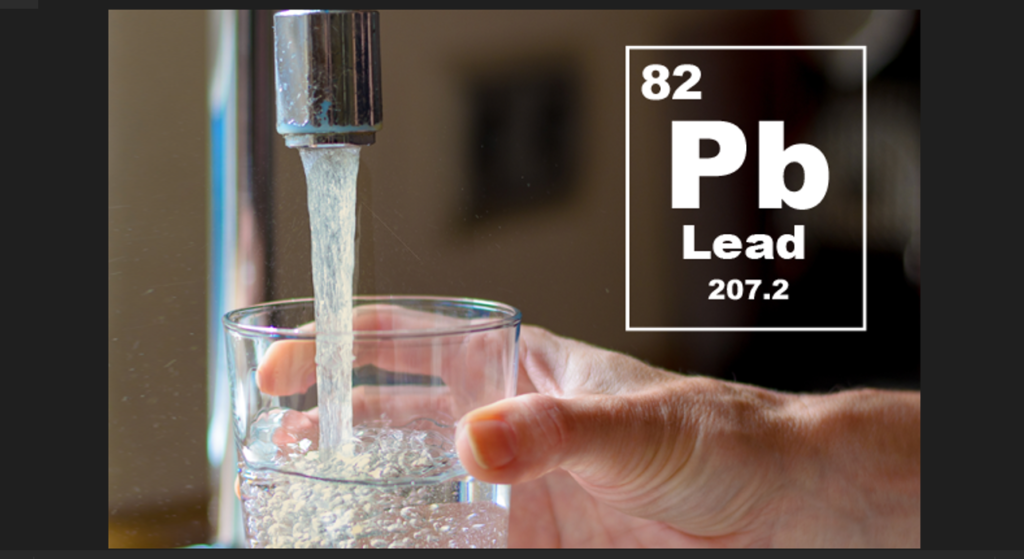WASHINGTON — The federal government will send nearly $12.7 million to the U.S. Virgin Islands to help reduce exposure to lead in drinking water, Environmental Protection Agency officials said Thursday.
The federal funds from the EPA’s successful Drinking Water State Revolving Fund, part of the Bipartisan Infrastructure Law, are meant to help rid the United States of lead poisoning, which can cause a range of serious health problems, including irreversible harm to children’s brain development.
Lead exposure disproportionately affects communities of color and low-income families, the EPA said, with some 1.7 million lead pipes in use nationwide.
None of those lead pipes are in the USVI, however, according to officials at the Virgin Islands Water and Power Authority. Last year’s lead-drinking-water scare on St. Croix was the result of flawed testing, not widespread heavy-metal poisoning, Governor Albert Bryan said earlier this year.
The lead-poisoning alert led to a State of Emergency and public pipes cut off in 36 areas and widespread concern amongst those without cisterns to drink from.
The extraordinary lead and copper levels in many St. Croix municipal water pipes discovered in September 2023 were likely caused by tests performed at the meter, not at the household faucet. Subsequent testing found dramatically lower lead and copper levels more in line with EPA standards. WAPA has since sought pipe-coating treatments that could avoid future potential problems, officials said.
Still, WAPA officials are working to replace all St. Croix’s water pipes. The authority has received a $1 billion FEMA-approved grant to replace St. Croix’s entire potable water distribution system and was provided a $30 million sub-award to contract master planning and conceptual design. To maximize the accuracy of reconstructing the water system, a hydraulic model was built to determine which aspects of the current system need to be brought to industry standards, officials have said.
The $12.7 million announced Thursday is the first ever federal funding dedicated to replacing lead service lines, said Department of Planning and Natural Resources Commissioner Jean-Pierre Oriol.
“During the State of Emergency of 2023, various measures were put in place to address critical situations,” Oriol said. “Given the recent funding allocations for lead service line replacement under the Bipartisan Infrastructure Law, it’s crucial for DPNR and other relevant agencies to collaborate closely with the Water and Power Authority to upgrade the territory’s water infrastructure. This collaboration ensures that lead service lines are replaced, water quality is improved, and residents have access to reliable services. By reaching communities across the U.S. Virgin Islands, including rural areas and historically underserved populations, the Bipartisan Infrastructure Law is making critical investments that will enhance the lives of the people of the territory. Whether it’s rebuilding roads, expanding internet access, or improving water quality, these investments are vital for the U.S. Virgin Islands’ future.”
Lisa Garcia, the EPA’s regional administrator, said the funding, championed by President Joe Biden, was important and long overdue.
“Every Virgin Islands resident deserves safe drinking water, and this major injection of funding will further bolster the work to achieve that goal,” Garcia said. “For too long, the urgent need to improve our drinking water systems has far outweighed the available funding, as evidenced in the recent drinking water situation on St. Croix.”
Alongside the funding announced today, EPA is also releasing a memorandum that clarifies how states can use this and other funding to most effectively reduce exposure to lead in drinking water. Additionally, EPA has developed new outreach documents to help water systems educate their customers on drinking water issues, health impacts of lead exposure, service line ownership, and how customers can support the identification of potential lead service lines in their homes, said EPA Administrator Michael Regan.
“The science is clear, there is no safe level of lead exposure, and the primary source of harmful exposure in drinking water is through lead pipes,” Regan said. “President Biden understands it is critical to identify and remove lead pipes as quickly as possible, and he has secured significant resources for states and territories to accelerate the permanent removal of dangerous lead pipes once and for all.”



